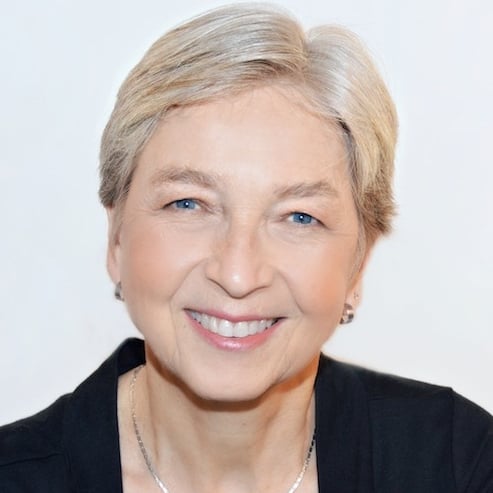Suspension of NPR’s Kroc fellowships disrupts talent development, career plans of student journalists

golfcphoto / iStock
When Abby Neff received an email from NPR’s talent acquisition team last month, she thought she had landed one of the most coveted jobs among journalism graduates.
Neff, a senior at Ohio University’s E.W. Scripps School of Journalism, applied for the NPR Kroc Fellowship in November, hoping that she would be picked for one of three spots in the prestigious program. A recipient of a 2022 White House Correspondents Association scholarship, Neff had heard about the fellowship from Tamara Keith, NPR White House correspondent and WHCA board president.
Keith “mentioned that the program was a really big deal, which kind of solidified it in my mind that I wanted to apply,” Neff said.
Neff was excited and nervous about the fellowship until she read the email in her inbox. Instead of the thrill of learning she’d been accepted or the sting of a rejection, Neff felt disappointed and shocked. The email told her that NPR had canceled the fellowship.
“NPR has made this difficult decision due to our current financial challenges, and we wanted you to know as soon as possible,” said Mel Clark, director of talent acquisition, in the Jan. 24 email. “We understand the value of this program for NPR and the public radio system, and we hope to reinstate it in the future.” Neff quickly tweeted a screenshot to her friends and followers, many of whom she said had also applied to the program.
Suspension of the Kroc fellowships was the second setback for this year’s class of journalism graduates who are looking for job opportunities in public radio. NPR canceled its summer internship program in December, a month after declines in sponsorship revenues prompted discretionary budget cuts and a hiring freeze. The network announced Wednesday that it will cut 10% of its workforce and eliminate most vacant positions.
Summer internships and Kroc fellowships are important paths for young journalists to pursue careers in public radio — and for NPR to identify and train new talent. As of June 2020, 17% of NPR’s employees had started as interns at the company, according to NPR. Alumni include Ari Shapiro, now host of All Things Considered, and Audie Cornish, a former host of All Things Considered who now hosts a weekly CNN podcast, The Assignment.
NPR created the Kroc fellowship in 2003 to “identify and develop the next generation of extraordinary public media journalists,” according to its website for the program. Its name honors the late philanthropist Joan Kroc, who gave a $200 million bequest to NPR that year. The funds went into an NPR endowment and don’t directly support the fellowships, NPR said in a statement. Instead, NPR funds the fellowship program from its operating budget.
Recent college graduates and seniors who are preparing to graduate are eligible for the Kroc fellowships. Each applicant submits a cover letter, portfolio, two letters of recommendation, three essay questions, a resume and an academic transcript. In a typical year, applications are due in November; NPR selects 10 finalists in mid-January and announces the three fellows shortly afterwards.
Fellows receive stipends of more than $50,000 during the program, and NPR covers housing costs during their three-month rotation at an NPR member station.
‘The Kroc Fellowship changed my life’
Isabella Gomez Sarmiento, a producer on NPR’s Culture Desk and Book of the Day podcast, received a Kroc Fellowship in 2019. “It was an amazing experience,” she said. “You spend three months producing, three months on the national desk, three months at a local station and three months doing digital. You gain exposure.”
“The Kroc Fellowship changed my life, especially at a time when entering journalism is so scary,” Gomez Sarmiento said. The experience put her on a career-building track at NPR, enabling her to move up to where she is today.

Kiara Santos, a senior communication major at Drexel University and editor-in-chief of Drexel’s student newspaper The Triangle, also applied for the 2023–2024 fellowship. She was waiting anxiously for word about her application when the email arrived in her inbox Jan. 24. Santos, who identifies as Afro-Latina, saw the cancellation as a setback for journalists of color to start careers in public media.
“With cancellations like these, you’re not letting us in the door. They’re removing the door,” Santos said. “Our representation is very important. When they cancel things like this, it makes it even harder for us to break into the industry. … We can’t all know someone who knows someone.”
“It takes time, it takes energy, it feels like a part-time job, or a college application, and there’s no communication,” said Serena Puang, a senior at Yale University who had also applied. “It seems inconsiderate for them to cancel after all the work we put in.”
NPR and other news organizations that have canceled internships and scaled back hiring are losing more than they realize in terms of talent development, said Puang, who is a former Asian American Journalists Association fellow.
“It does feel a little bit like the industry is collapsing in on itself,” she said. “I’m seeing a lot of my friends … decide not to look for jobs in the industry because of how volatile it is. They’re all people of color, women, all people that are targeted by DEI efforts.”
Neff and Santos both said they felt daunted about starting careers in journalism this year, especially following layoffs at major news organizations such as CNN, the Washington Post and NBC News. They said they’re now applying to almost every job opening they find.
Gomez Sarmiento expressed hope that NPR will follow through on its pledge to reinstate the program. “As a Kroc Fellow, you are treated as an equal team member. You’re given assignments and treated with respect. You enter on such an equal playing field. It’s an experience and honor like no other,” she said.







There’s plenty of opportunity to work in public media. Come to Current’s Public Media Virtual Career Fair on March 29 where reruiters from PBS, APM and dozens of public media stations will be eager to connect with jobseekers at all stages of their careers. Sign up and upload your resumer here: https://bit.ly/2023publicmediacareerfair. Good luck.
Training future generations of journalists is critical.
KALW Public Media offers a summer journalism training program in the San Francisco Bay Area. Many people working prominent positions in the industry build their skills at this station and its training newsroom, and the station is accepting applications for the program right now:
https://www.kalw.org/apply-for-the-kalw-news-summer-journalism-program
KALW also offers training opportunities for teenagers in its Summer High School Podcasting Institute, which is also currently accepting applications:
https://www.kalw.org/summer-podcasting-institute